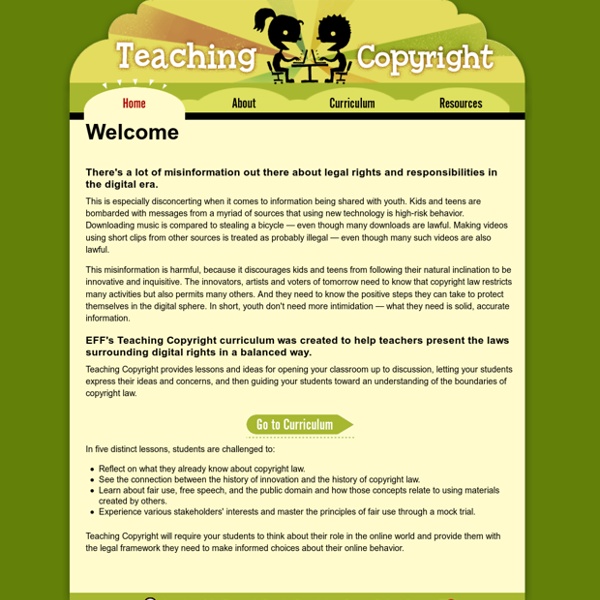Family Educator Commons
Groundbreaking books, such as The World is Flat and A Whole New Mind, have suggested that a whole new kind of educational system is necessary to prepare today’s students with the 22nd century skills necessary for the emerging global knowledge economy. However, even the most innovative experiments within the public school system, such as charter schools and virtual school networks, are trapped within the antiquated institutions designed for the 19th century industrial economy. Teachers are forced to work within the assembly line structure imposed upon them: classes based on identical ages rather than abilities or interests, and run on a specific timeframe that requires everyone to use the same curriculum to produce an identical outcome at the same time to pass high-stakes tests.
Primary Source Sets
Teachers Abraham Lincoln: Rise to National Prominence Speeches, correspondence, campaign materials and a map documenting the free and slave states in 1856 chronicle Lincoln’s rise to national prominence Alexander Hamilton Manuscripts, images, and historic newspapers document the life and accomplishments of Alexander Hamilton American Authors in the Nineteenth Century: Whitman, Dickinson, Longfellow, Stowe, and Poe A selection of Library of Congress primary sources exploring the topic of American authors in the nineteenth century, including Walt Whitman, Emily Dickinson, Henry Wadsworth Longfellow, Harriet Beecher Stowe, and Edgar Allan Poe. Top
In Context - Opposing Viewpoints in Context
Opposing Viewpoints in Context is the premier online resource covering today’s hottest social issues, from Offshore Drilling to Climate Change, Health Care to Immigration. Opposing Viewpoints in Context helps students research, analyze and organize a broad variety of data for conducting research, completing writing assignments, preparing for debates, creating presentations and more. In addition to the engaging, streamlined interface and media-rich topic pages, the product's unprecedented collection of content and curriculum-focused tools that help students explore issues from all perspectives include: Opposing Viewpoints in Context contains more than 700 Greenhaven Press, Gale, Macmillan Reference USA™, Charles Scribner’s Sons® and U·X·L titles.
A Mobile Movie Studio: Create Classroom Videos with the iPad
The addition of an HD camera to the iPad 2 has fundamentally changed the way we can create video. Every part of the creation process–writing, recording, editing, and distributing–is possible on the iPad. EduAwesome! A video is created three times: when you write it, when you shoot it, and when you edit it.
Roundhouse Journal
There is in fact nothing that horrifies the schoolmaster so much as those strange creatures, precocious boys in the already dangerous period of adolescence. Further, a certain element of genius had already seemed unwholesome to them in Heilner, for there exists a traditional hiatus between genius and the teaching profession and any hint of that element in schoolboys is regarded by them with horror from the very first. As far as they are concerned geniuses are those misguided pupils who never show them any proper respect, begin to smoke at the age of fourteen, fall in love at fifteen, go to pubs at sixteen, read forbidden books, write scandalous essays, stare at their teacher with withering scorn and are noted down in the school day-book as trouble-makers and candidates for detention.
Gooru
Supported file types: .doc/.docx, .xls/.xlsx, .ppt/.pptx, .pdf, .jpg, .jpeg, .png, .gif, .bmp Max file size: 25 MB Supported thumbnail types: .jpg/.jpeg, .png, .gif, .bmpMax upload size: 500 kB You completed:SearchEngines For All Learners Next up:
The need for media literacy in the digital age
Today’s students are not being equipped with the critical thinking and analysis skills they need to successfully navigate our media-saturated environment. Time spent consuming media, now up to nearly eight hours a day, continues to increase, but students often are poorly versed in analyzing and understanding different media messages and formats. They prefer to see the world of media messages as simple and straightforward, to be taken at face value, according to recent research in the field of media literacy. While students express confidence that media messages have clear primary meanings and sources that can be easily identified, media literacy demands nuanced thinking about message creators as well as their goals and values.
20 Web 2.0 Sites that does not Require Sto
This is a post I've been wanting to do for some quite some time but had to do some research to get the information I needed. A huge factor for schools in dealing w/ students and working online is CIPA/COPPA compliance. This is to ensure student safety as well as monitor/filter their online behavior.



